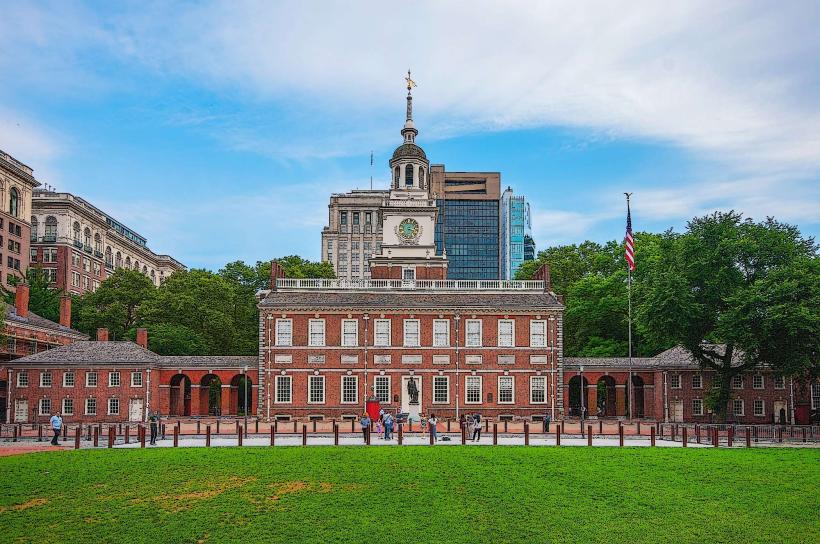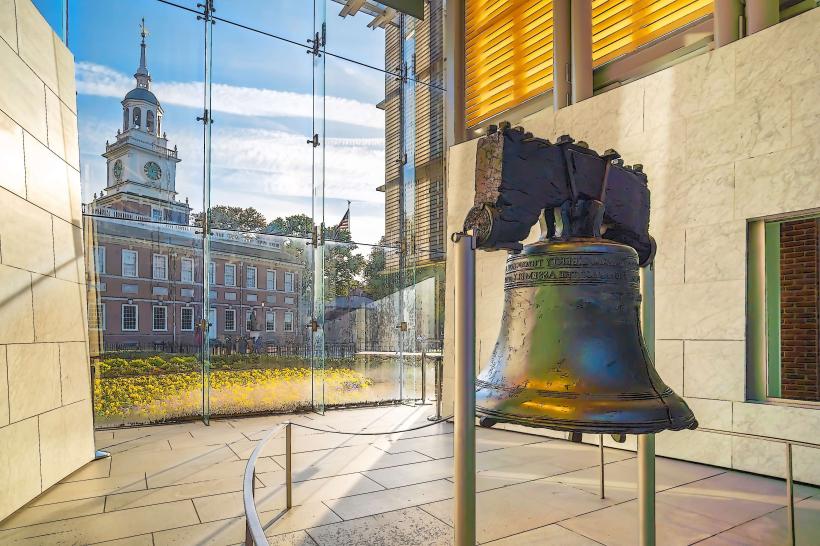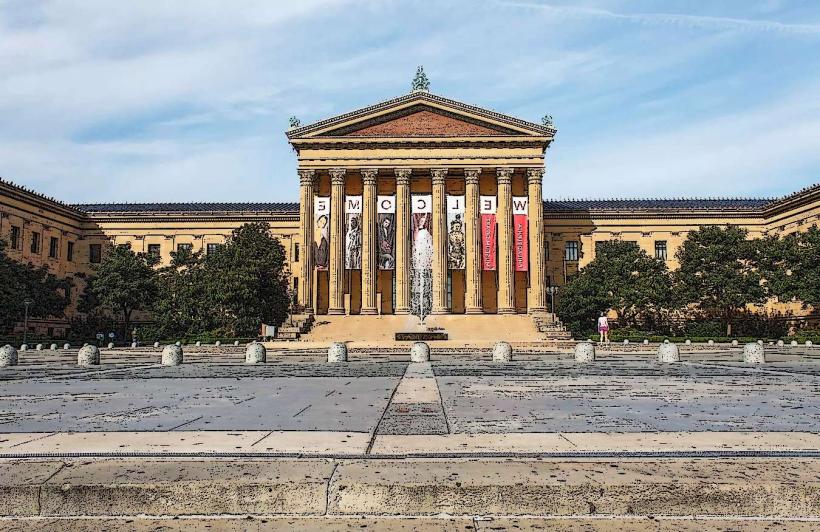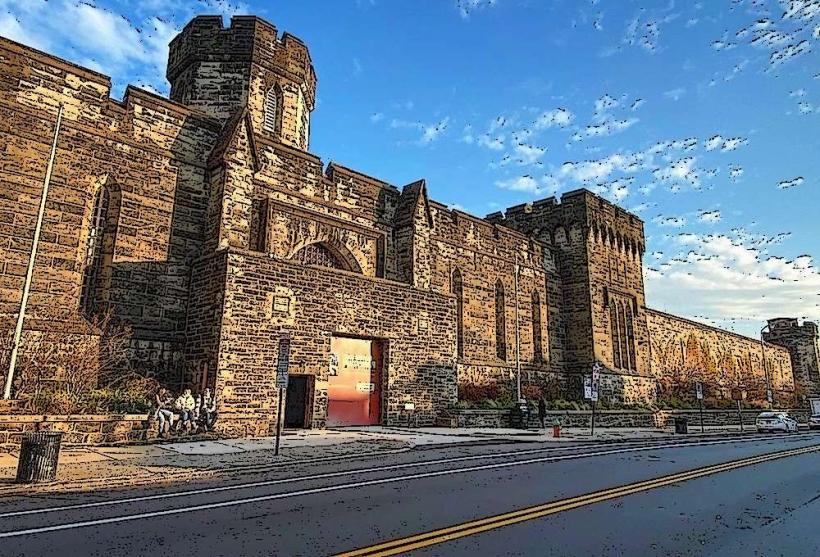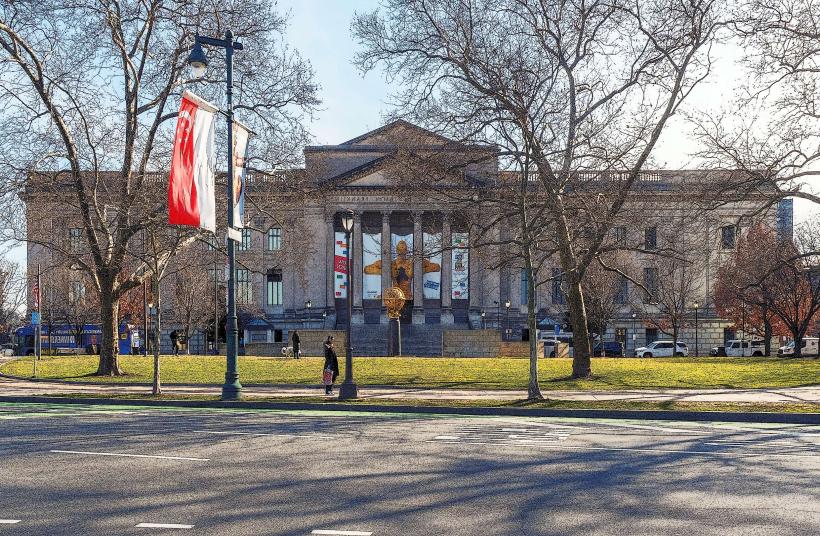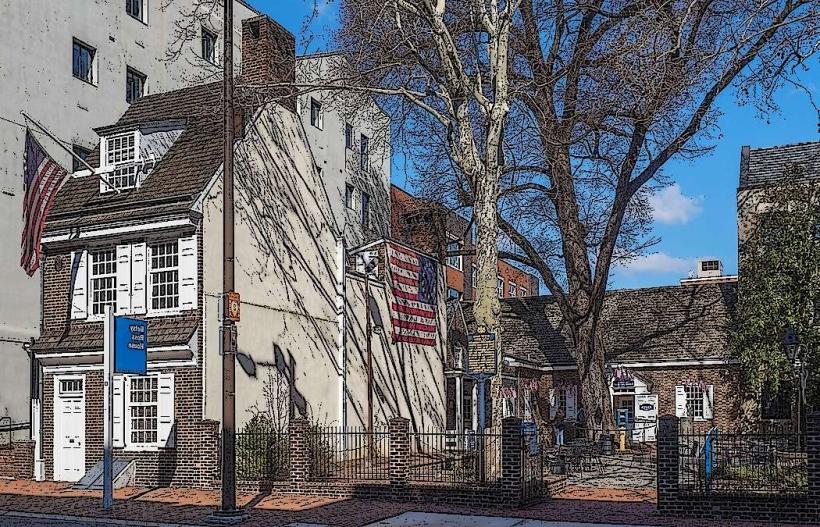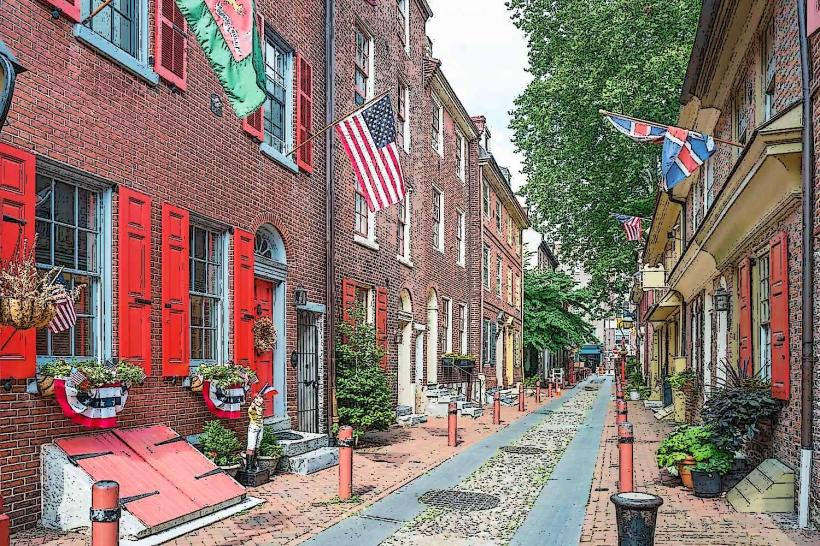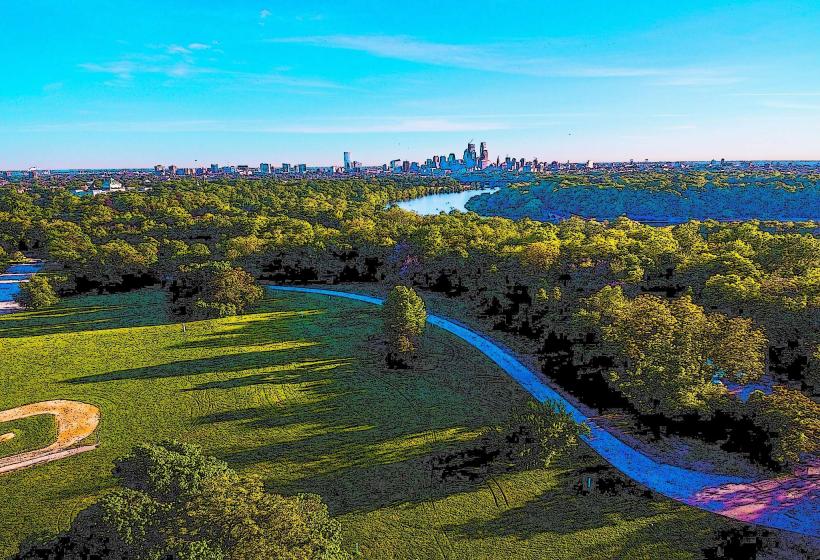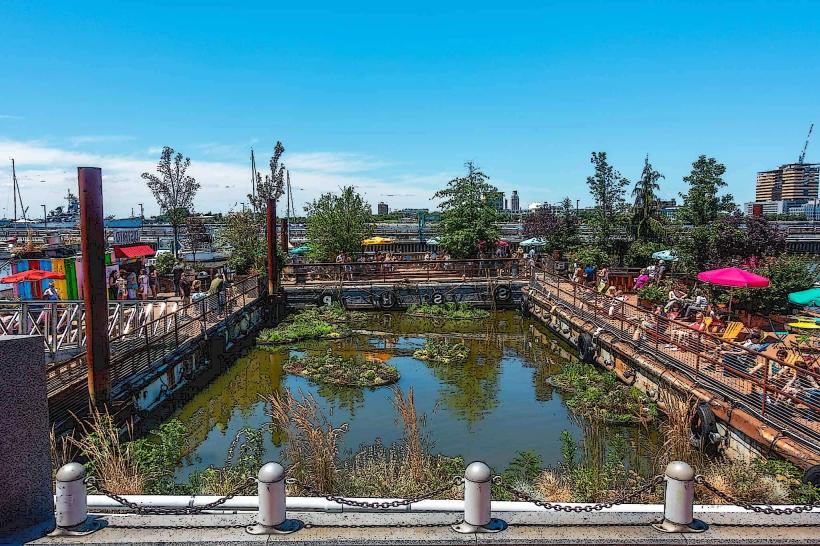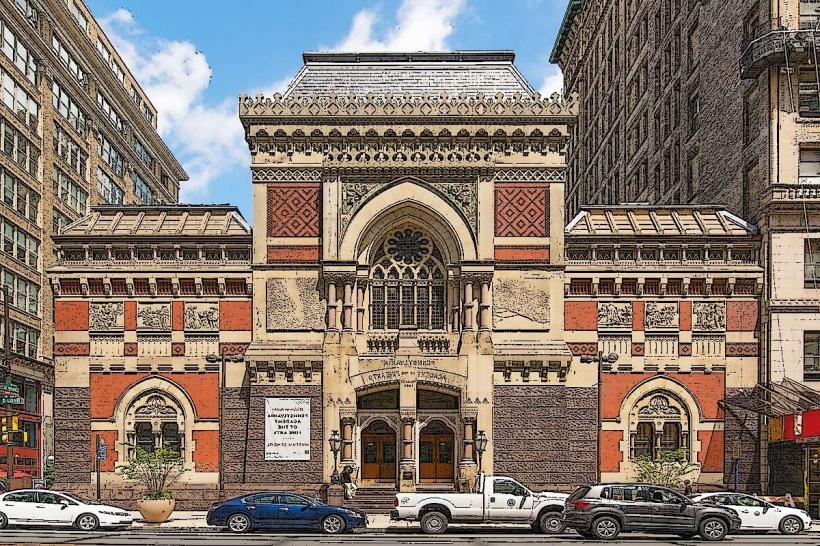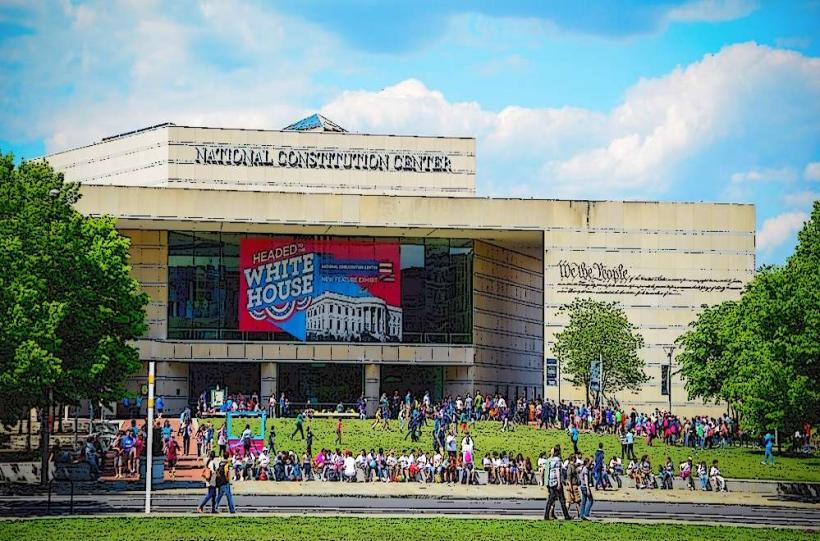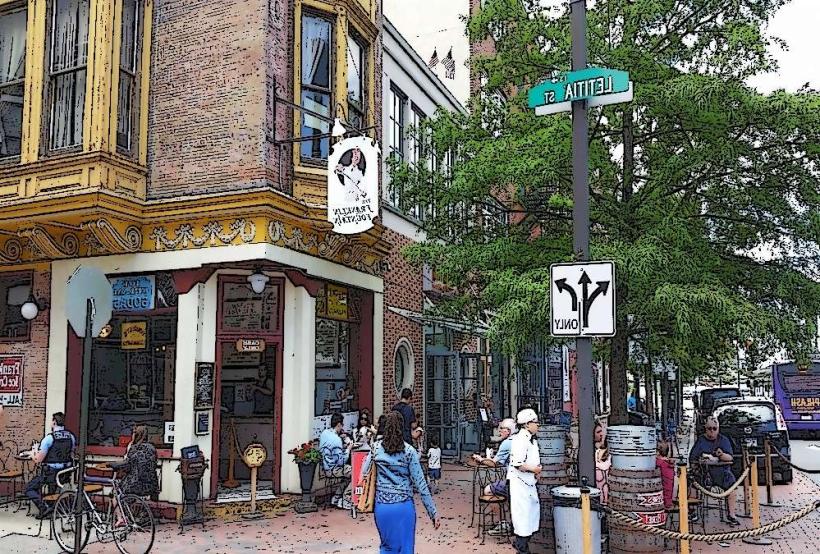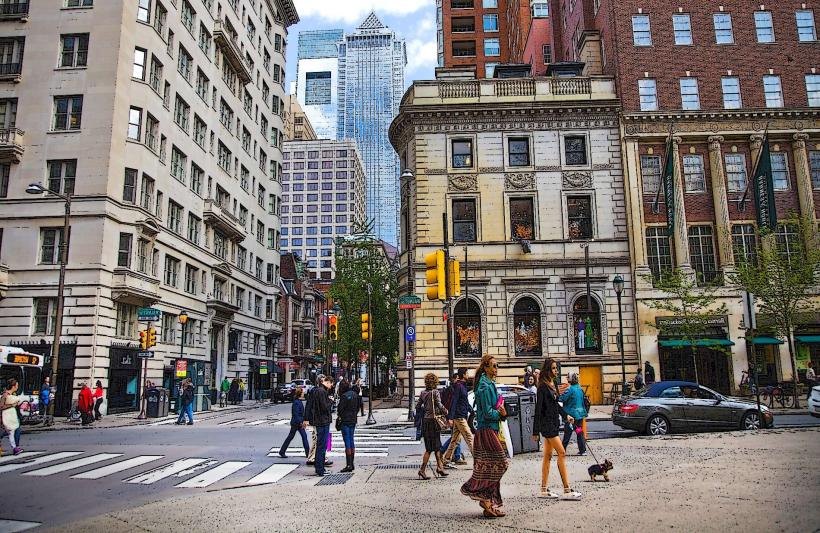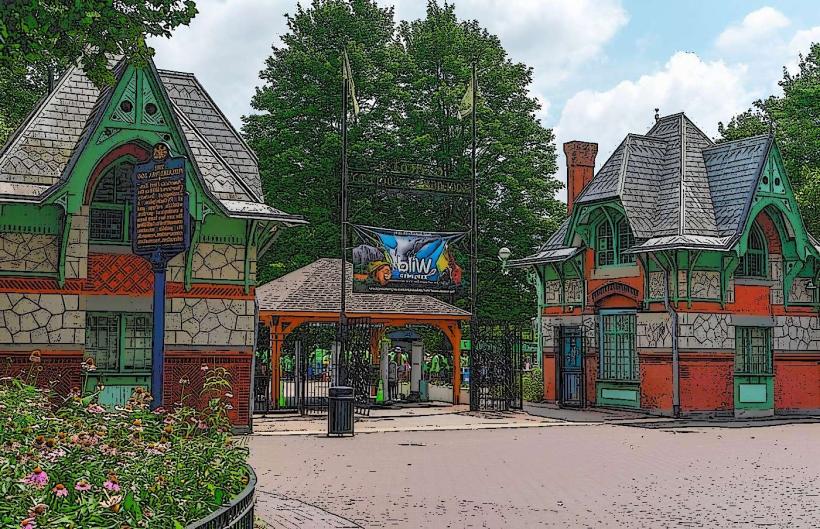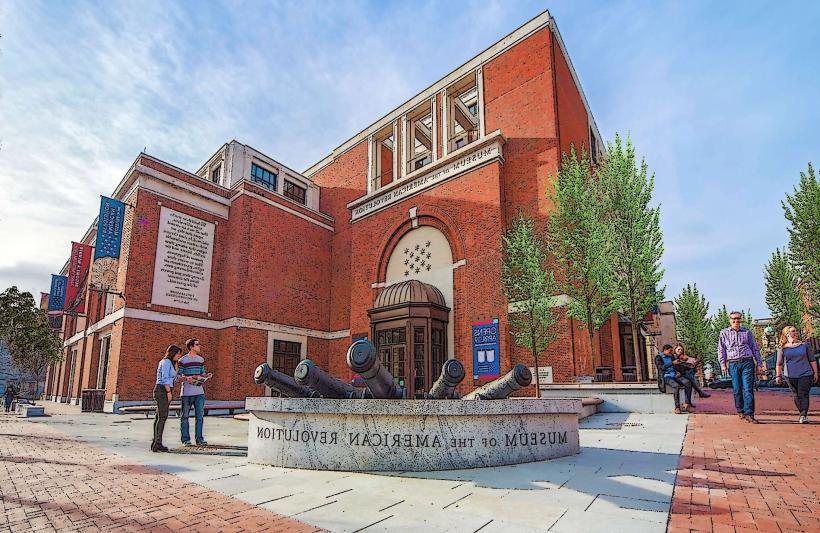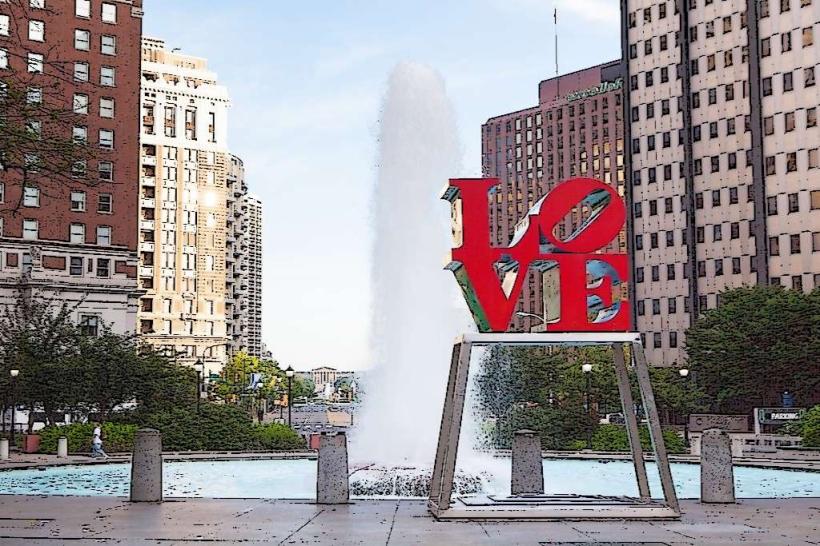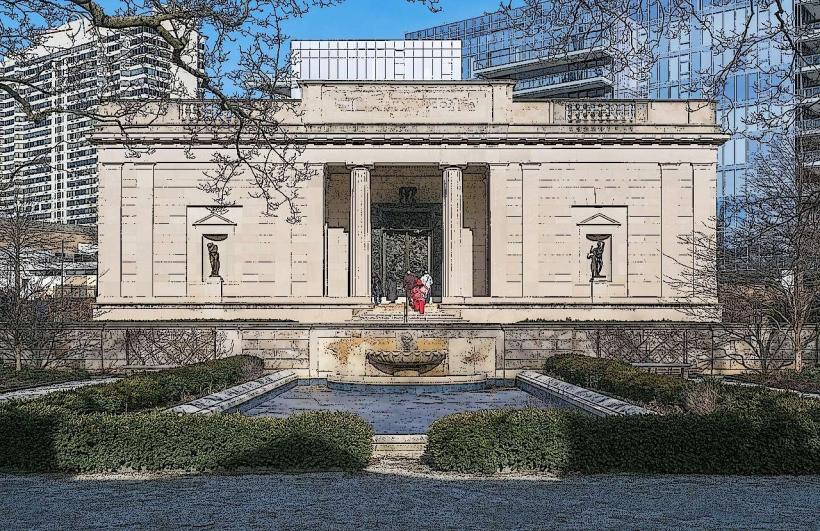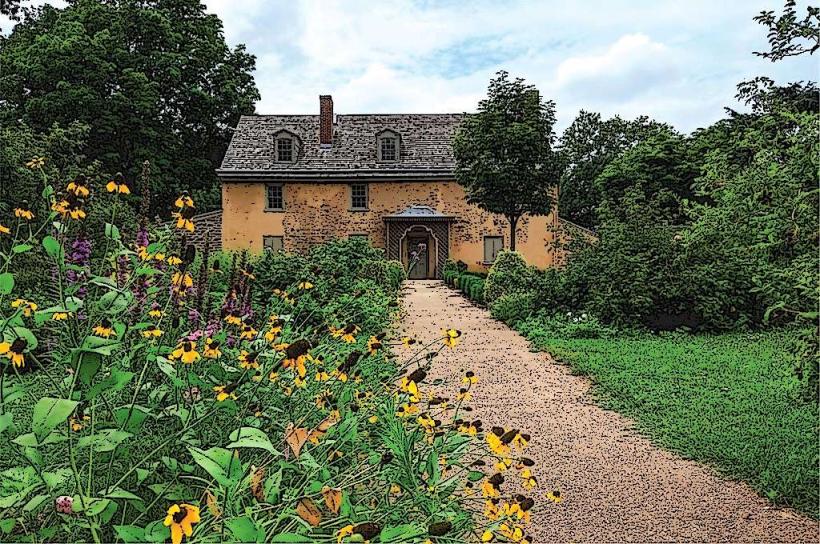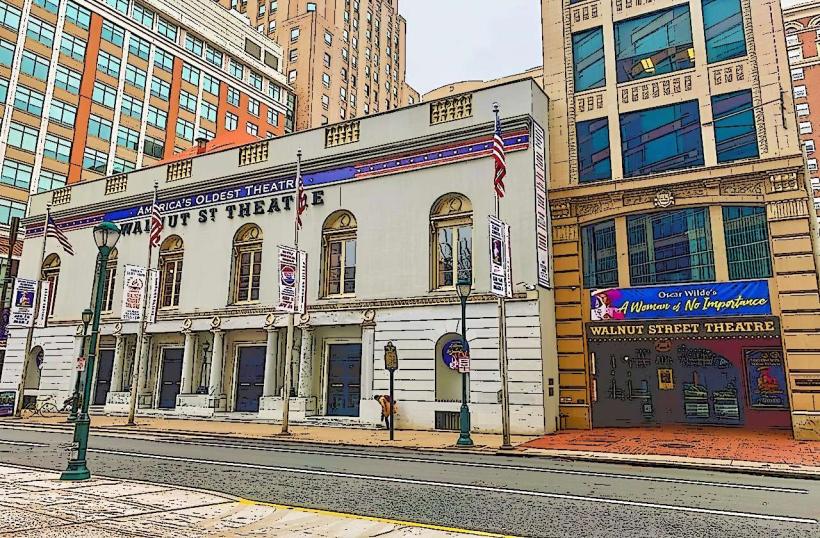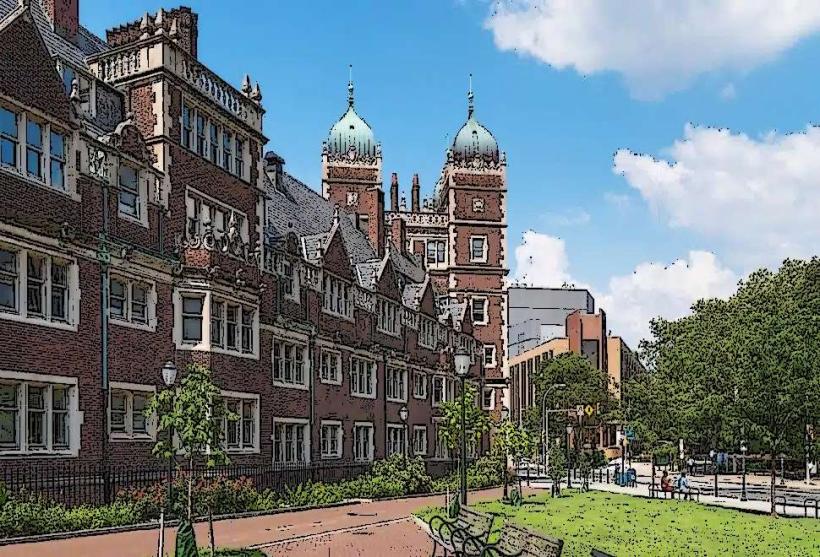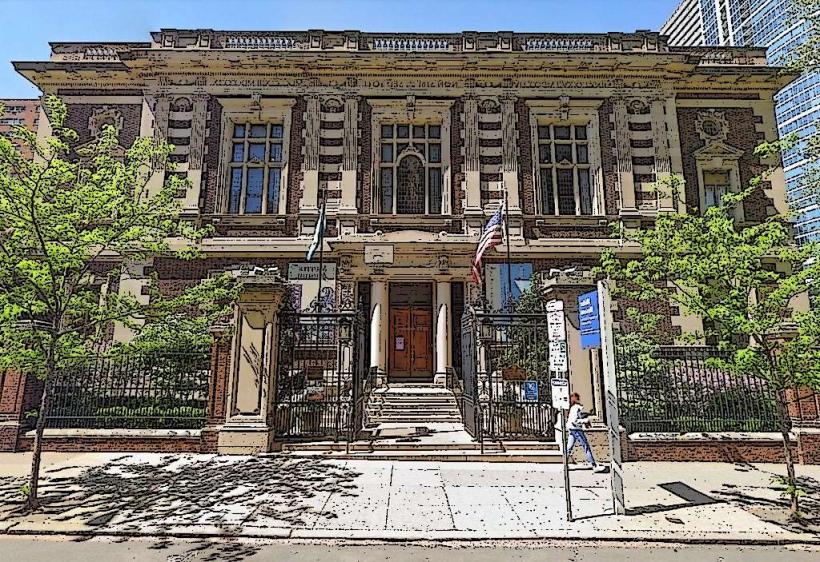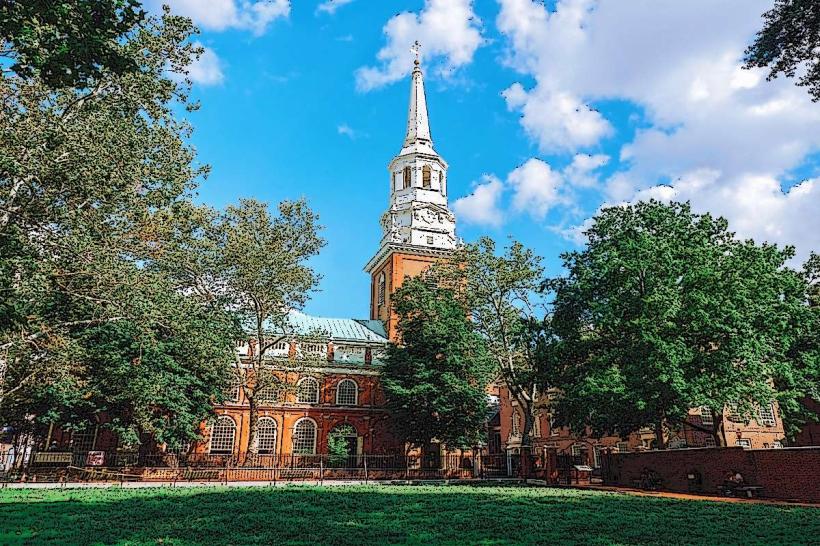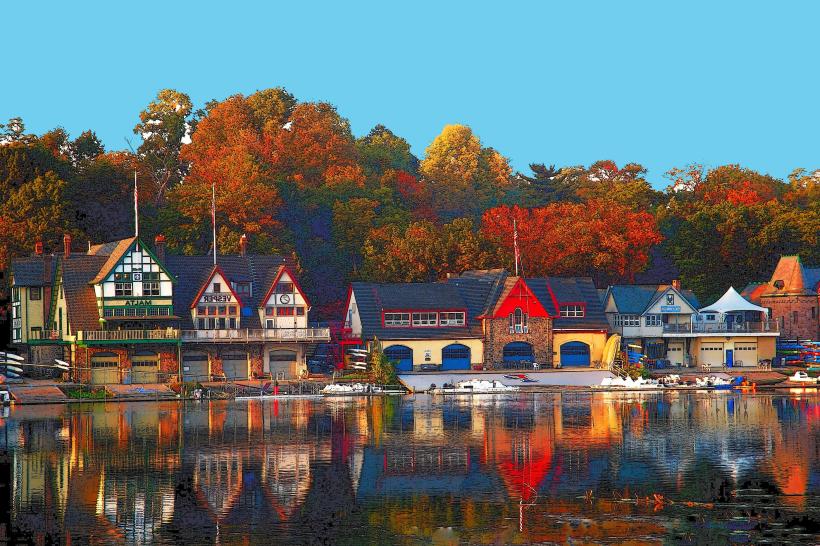Information
Landmark: Cathedral Basilica of Saints Peter and PaulCity: Philadelphia
Country: USA Pennsylvania
Continent: North America
Cathedral Basilica of Saints Peter and Paul, Philadelphia, USA Pennsylvania, North America
The Cathedral Basilica of Saints Peter and Paul is a Roman Catholic cathedral located in Philadelphia, Pennsylvania, USA.
It serves as the mother church of the Archdiocese of Philadelphia.
Visual Characteristics
The cathedral is constructed primarily of granite and sandstone. Its exterior features a prominent dome, measuring 235 feet (72 meters) in height, and two bell towers. The architectural style is predominantly Renaissance Revival, with elements of Baroque influence. The interior is characterized by marble columns, stained-glass windows, and a large mosaic ceiling.
Location & Access Logistics
The cathedral is situated at 18th Street and Race Street in Philadelphia. It is approximately 1.5 miles (2.4 km) west of the Delaware River waterfront and 1 mile (1.6 km) northwest of City Hall. Public parking is available in a lot adjacent to the cathedral, accessible from Race Street. SEPTA bus routes 42 and 48 stop within a 0.2-mile (0.3 km) radius of the site.
Historical & Ecological Origin
Construction of the cathedral began in 1846 and was completed in 1864, with subsequent additions and renovations. The architect was John Notman, and the supervising architect for later stages was Napoleon LeBrun. It was designed to be the largest Roman Catholic cathedral in the United States at the time of its construction, serving as a central place of worship and a symbol of the Catholic faith in the region.
Key Highlights & Activities
Visitors can explore the main sanctuary, observe the architectural details, and view the extensive artwork. Guided tours are available on select days, focusing on the history and art of the cathedral. The crypt beneath the cathedral houses the remains of several bishops and archbishops.
Infrastructure & Amenities
Restrooms are available within the cathedral complex. Limited shaded areas are present on the grounds. Cell phone signal (4G/5G) is generally available in the vicinity. Food vendors are not located on-site, but numerous dining establishments are present within a 0.5-mile (0.8 km) radius.
Best Time to Visit
For optimal interior lighting and fewer crowds, visiting on a weekday morning between 10:00 AM and 12:00 PM is recommended. The cathedral is open year-round, with no specific seasonal restrictions for general visitation.
Facts & Legends
The dome of the Cathedral Basilica of Saints Peter and Paul was inspired by St. Peter's Basilica in Rome. A unique detail is the presence of a replica of Michelangelo's Pietà, carved from Carrara marble, located in a side chapel.
Nearby Landmarks
- The Franklin Institute (0.3km Northeast)
- Rodin Museum (0.4km Northwest)
- Philadelphia Museum of Art (1.2km West)
- Barnes Foundation (0.6km West)
- Civic Center (1.8km Southwest)


